6 Reasons Why Coffee Is Nothing Like Wine
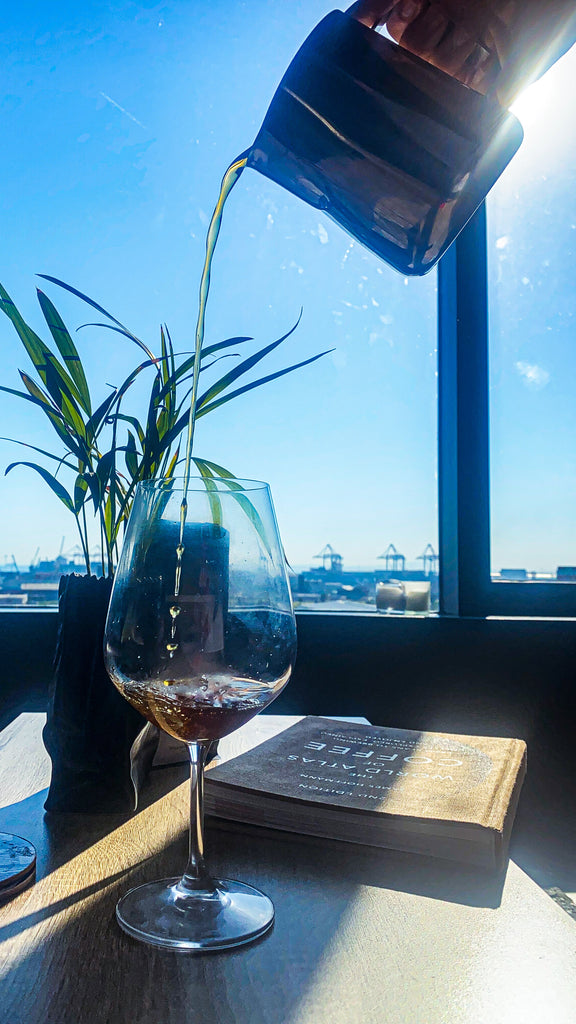
Once you’ve worked in the coffee industry for a while, it’s basically unavoidable. You will wind up participating in conversations about how coffee is just like wine. If you work in coffee in Cape Town, a city that is surrounded by world-class vineyards, it’s probably even more inevitable. I have to confess, I’ve probably been the one to lead a discussion on the parallels more than a handful of times over the years.
There are good reasons for these comparisons to come up of course. I think the coffee industry may be particularly fond of them because, whether due to longevity or better marketing, the wine industry has arguably done a better job of communicating with the public about how to appreciate the nuance, complexity and variety in wine. It’s helpful to use wine as an analogy when we specialty coffee lovers talk about terroir, fermentation, plant varieties, farming practices, and all these things that influence flavour in both of our beloved beverages.
My colleague Matt, has done a great job of expanding on some of these similarities in his companion blog post: 6 Reasons Why Coffee Is Just Like Wine.
Despite all those similarities and helpful parallels, I’ve found myself thinking more about what’s different between coffee and wine recently though. This may be a reaction to conversations I’ve had where people (who are in neither industry) have tried to draw conclusions about how to expand specialty coffee in South Africa, based on observations about what they see happening in wine around the world. They’re both specialty beverages derived from single crops, so the dynamics of the industries must be the same right?!
I don’t think so.
The more I’ve thought about it, the more I’ve realised how fundamentally different coffee and wine are, particularly from the perspective of the dynamics of the industry. There may be parallels in the influences on flavour, and there may be lessons to learn from the wine industry on how to communicate about flavour with the public, but the coffee industry is a fundamentally different beast. I think that understanding these differences is important both to the enjoyment of and success in coffee. Here are some of the most important ones.
1. Age is not coffee’s friend
Let’s start with an obvious (though not often reflected on) difference. Coffee lives fast and dies young. Most wines will have a couple of years in them once they’ve been bottled. Some will last the better part of a decade. Some of the best wines will be great for generations. I’ve tasted wine that was older than I was at the time. Thankfully, I haven’t had to go through that experience with coffee.
Roasted coffee will taste good for 4-6 weeks from roast on average. If it’s roasted dark, used for espresso, or perhaps just a coffee that seems to be in a rush, it can be a lot less than that. Even unroasted, coffees really only last 1-2 years. You’re basically never going to taste a coffee that wasn’t grown and harvested within the last handful of years, at least not a good one.
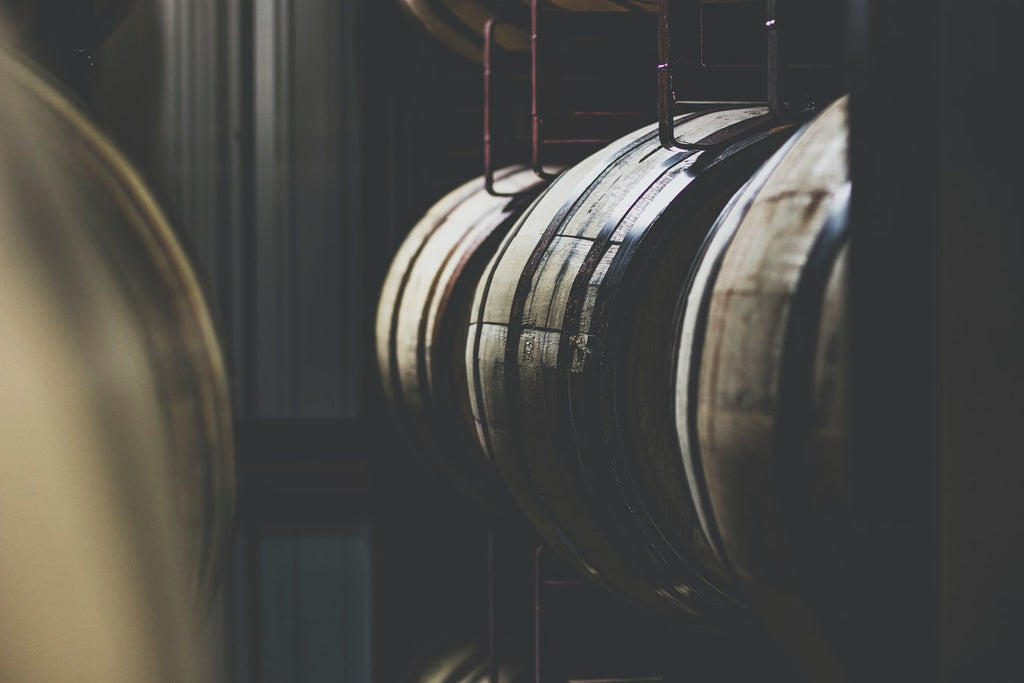
Why does this matter? It fundamentally changes the nature of consumption and conversation around coffee. For starters, no one is ever going to build a collection of coffee beans (at least I hope not) but many wine lovers will have their collection of wine. To add insult to injury, some of those stashed wines may actually be improving in quality as they sit there, provided the conditions are right and it’s a wine made to age. I don’t think any coffee is improving past a couple of weeks from roast date, or a few months from harvest.
How does this play out for coffee lovers? It means that a lot of the time, when you’re waxing lyrical about the amazing coffee you discovered a couple of weeks ago to your friend, you don’t actually have any more of it! Either you or your friend have to go get another bag, freshly roasted, and that’s only possible if the roaster still has more of that coffee. Inevitably, that coffee will disappear, and you will never try that lot again. You may never even try that farm’s coffee again. That’s just the ephemeral nature of specialty coffee.

2. The growers and makers of coffee are not the same people
For most of the specialty end of the wine industry, the people who grow the wine and make the wine are the same people. At the very least, they are part of the same company. Of course, there are exceptions, but generally speaking, wine is made on the vineyard that grew it. That has huge implications for how wine is made, traded and sought out.
Lovers of wine will know the vineyards that produce their favourites. Those predilections will unconsciously be associated with all aspects of wine production, from the variety, to the farming techniques, to the winemaking practices. Coffee lovers may discover their favourite roasters (as they should) and return to them for trusted guidance on what to drink, but those roasters will be offering up coffees grown by dozens of different farmers from around the world, and that selection will be constantly changing. Don’t get me wrong, I think this is part of the fun of coffee, but it’s a fundamentally different experience.
3. There’s one more key step in the production chain
There are of course dozens, if not hundreds of steps in the production of both wine and coffee. I don’t mean to oversimplify; however, if you look at these at a macro level, the reality is that coffee has at least one more important one.
Like wine, coffee is grown, harvested, processed & “made”, but unlike wine, that “made” part needs to be split into two parts. Coffee first needs to be roasted, and then it needs to be brewed. These are both critical steps and essential prerequisites to the enjoyment of a good cup of coffee. The reality is that this makes the production chain more complex. It introduces an exponentially larger amount of possible combinations of variables that may influence the beverage’s flavour, and this is in comparison to an already very complex beverage!
4. You actually need to make coffee!
It’s definitely worth zeroing in on this last step in coffee’s production chain as well. This may sound incredibly obvious, but the fact that you need to make coffee just before consuming it is an absolutely massive difference to the world of wine. Sometimes I envy people in the wine industry on this point. All their customers have to do is open the bottle and drink it. Maybe they have to serve it at the right temperature; they probably should buy some decent glasses, but really, it’s relatively hard for them to screw it up.
In coffee, on the other hand, you could hand someone the very best bag of beans you ever tasted, and they could make something horrible with it if they didn’t know what they were doing. You can’t make a great cup of coffee from bad beans, but you sure can make a terrible cup of coffee from excellent beans. Tragic, isn’t it?
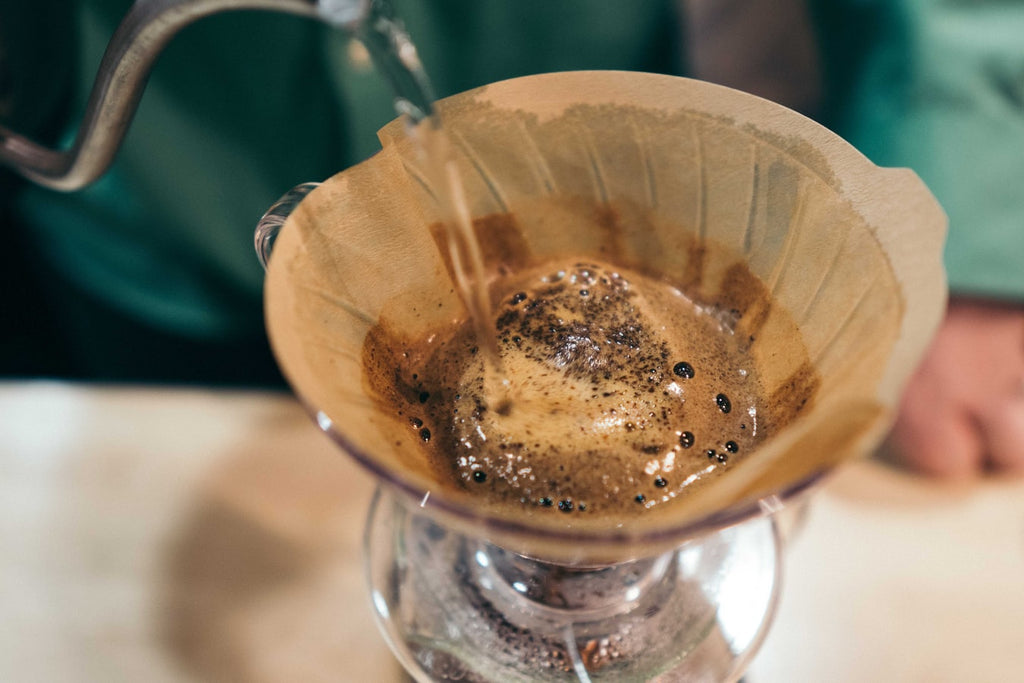
This problem is compounded by the fact that there are dozens, if not hundreds, heck, if not thousands of ways to make coffee. Even worse, each one tastes a bit different! Someone can taste a great wine at a farm or a restaurant, and buy a bottle of that wine and enjoy pretty much the same flavour experience at home. Most people will never get close to replicating the same flavour experience that they have in a cafe at home.

5. Serving great coffee requires equipment
Part of the challenge of replicating those flavour experiences is skill, no doubt, but the other part is equipment. Coffee makers and grinders vary in price and complexity but you need at least one of each to make your coffee. What does someone need to enjoy a glass of wine at home? Basically, just a mouth; maybe a corkscrew, but even that is going out of fashion.
This is where the coffee industry often gets snagged, because what do specialty cafes use to make coffee? They use machines that cost more than your car did. Is it surprising then that many drinkers of coffee decide that they really can only enjoy high quality coffee when they’re out? I personally believe that they’re mistaken, but I don’t blame them for thinking that. The coffee equipment required is a serious impediment to the widespread appreciation of specialty coffee at home, albeit one that we’re working on!
6. Milk & sugar
Man, have I got beef with milk and sugar. The latter has an outright ban at Cape Coffee Beans HQ, and while I’ve relented on the former, no one gets to consume milk in their coffee without a quip from me about milk being a substance that exists to turn small cows into big ones.
Our task in the coffee industry is seriously hampered by the fact that the vast majority of the people who drink our beloved beverage love to mix it with other things. Why?! Imagine if the wine industry needed to contend with huge amounts of people sweetening or diluting their products with other drinks. I suppose the whisky industry can probably sympathise with us here.
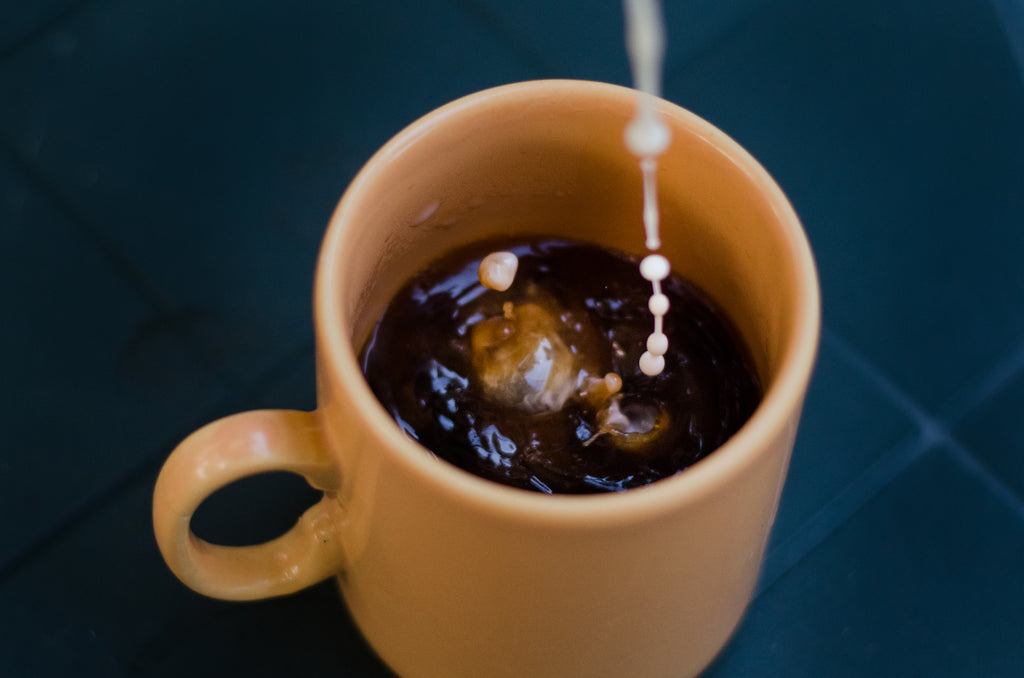
We have a real challenge in coffee. Most people don’t like coffee, they like coffee-flavoured sweetened milk. Maybe they would like coffee, if they’d ever tried a decent example of it, but the reality is that most people react to the mention of black coffee with a face that looks like they just smelled a fart. They are probably remembering that one time that they had one sip of black instant or crappy robusta-based grocery store blends because they somehow managed to run out of both milk and sugar at the same time.
The wine industry is lucky not to have to contend with a cultural norm of adulterating their product. This is one thing that I particularly envy, because the reality is that once you put milk and sugar in them, the differences between good and bad coffees are definitely muted.
Coffee... It's complicated
If you’ve made it to the end of this writing rant (a wrant maybe?) you’re probably thinking, “sheesh, coffee is complicated!”
Bingo! Coffee is really complicated.
That is both a blessing and a curse. It offers a wonderful world of nuance, variety and exploration. It allows the consumer to participate in the process in a way that I don’t think any wine lover would even think of. The challenge is that it makes the barriers to entry into the wonderful world of speciality coffee quite a bit higher. It makes marketing and growing the industry and individual businesses much more challenging. It can make specialty coffee seem less accessible, and even make some less educated consumers doubt the value of what is on the other side of that barrier.
Thankfully, there are more and more of us who get it, and who are helping to spread the word. Yes, it’s complicated, but it’s definitely worth it!
About the author
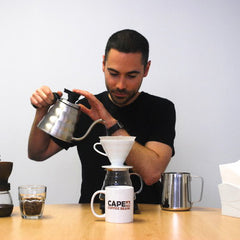
Phaedon is the founder of Cape Coffee Beans. He's a former strategy consultant turned eCommerce guy who came to South Africa for 6 months and wound up staying a decade (and counting). Back in 2013, he decided to try to turn a budding interest in coffee into a business and so Cape Coffee Beans was born. These days he spends most of his time thinking about how to expand the reach of specialty coffee in South Africa. He's also pretty partial to a good glass of South African wine.

Comments
Gosh what a great post! I needed those laughs! And yes, nothing like wine…
Posted by Richard on July 31, 2020
Good posts from both of you with both being right. Like a good relationship: it’s complicated, exciting, fun, patient, diverse and rewarding. Both coffee and wine have this in the mix and that is what makes it so special. A marriage of all the above with it’s agreements and disagreements making it an exciting destiny regardless how it got there…
Posted by Wayne Jones on August 04, 2020